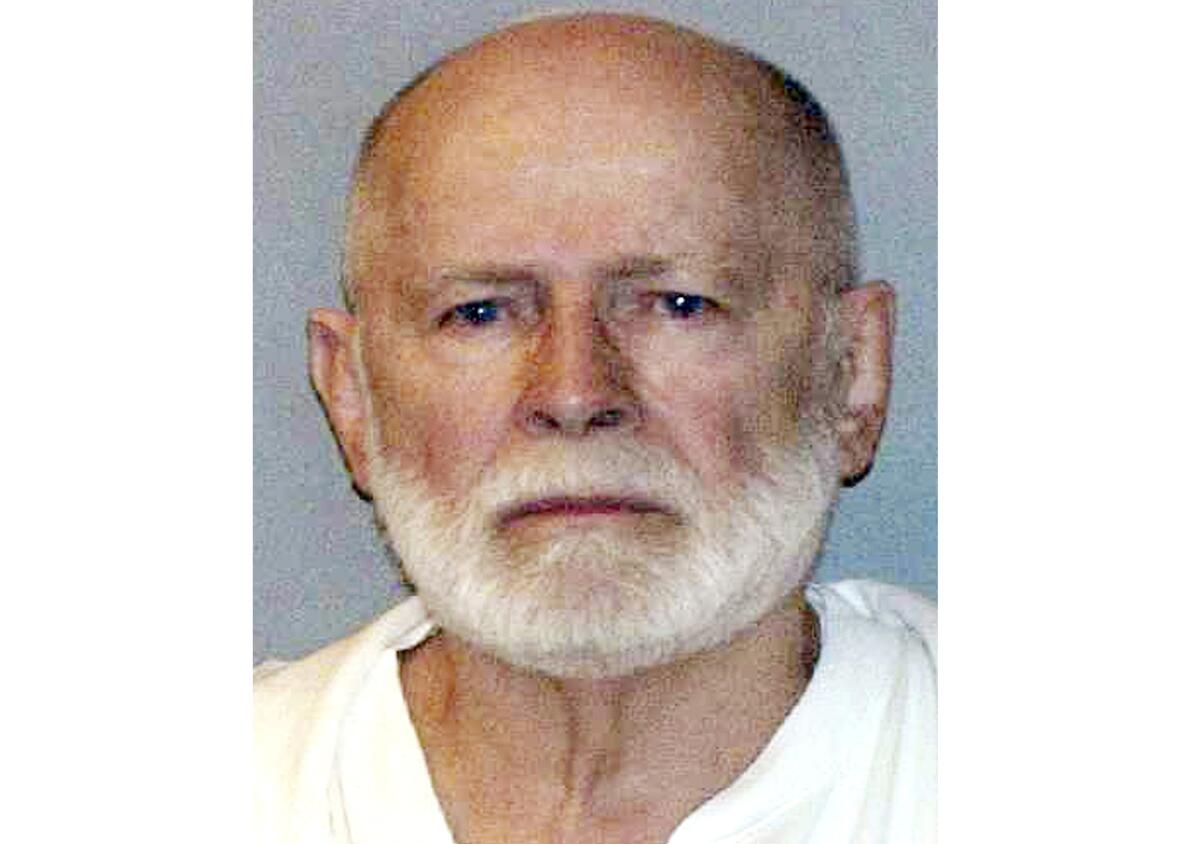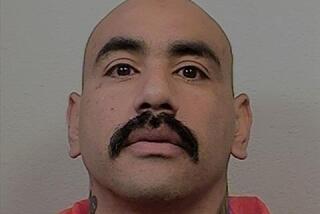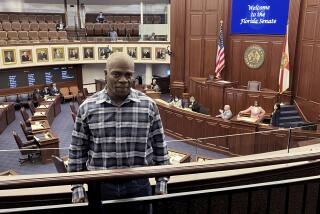3 men charged in Whitey Bulger’s prison killing, Justice Dept. says

BOSTON — Three men, including a Mafia hitman, have been charged in the killing of notorious Boston crime boss James “Whitey” Bulger in a West Virginia prison, the Justice Department said Thursday.
The charges against Fotios “Freddy” Geas, Paul J. DeCologero and Sean McKinnon come nearly four years after Bulger’s killing, which raised questions about why Bulger was placed in the general population instead of more protective housing. The men were charged with conspiracy to commit first-degree murder.
Bulger was beaten to death at U.S. Penitentiary Hazelton in October 2018 hours after he was transferred from a prison in Florida, where he had been serving a life sentence for 11 murders and other crimes. Prosecutors allege that Geas and DeCologero struck Bulger in the head multiple times and caused his death.
The Justice Department has also charged Geas, 55, and DeCologero, 48, with aiding and abetting first-degree murder, along with assault resulting in serious bodily injury. Geas faces a separate charge for murder by a federal inmate serving a life sentence, and McKinnon, 36, is charged separately with making false statements to a federal agent.
Geas and DeCologero were identified as suspects shortly after Bulger’s death, according to law enforcement officials at the time, but they remained uncharged as the investigation dragged on for years.
They were placed in solitary confinement throughout the inquiry, family members told the Boston Globe. McKinnon’s mother told the newspaper that her son, who was Geas’ cellmate at the time of Bulger’s killing, told her he didn’t know anything about the slaying.
Emails seeking comment were sent Thursday to lawyers for Geas and Bulger’s family. It wasn’t immediately clear if McKinnon and DeCologero had attorneys to comment on their behalf.
Geas remains in prison in Hazelton and DeCologero is being held in another federal prison facility. McKinnon, who prosecutors say was on federal supervised release when the indictment was handed down, was arrested Thursday in Florida.
Bulger’s family sued the Federal Bureau of Prisons and 30 unnamed employees of the prison system over his death, alleging that it appeared that the longtime gangster was “deliberately sent to his death” at the penitentiary nicknamed “Misery Mountain.”
Bulger was the third inmate killed in six months at USP Hazelton, where workers and advocates had long been warning about dangerous conditions. A federal judge dismissed the family’s lawsuit in January.
Bulger, who ran the largely Irish mob in Boston in the 1970s and ’80s, served as an FBI informant who gave information on his gang’s main rival in an era when bringing down the Mafia was a top national priority for the FBI. He later became one of the nation’s most-wanted fugitives.
Bulger fled Boston in late 1994 after his FBI handler, John Connolly Jr., warned him he was about to be indicted. With a $2-million reward on his head, Bulger became one of the FBI’s Ten Most Wanted criminals.
After more than 16 years on the run, he was captured at age 81 in Santa Monica, where he had been living in a rent-controlled apartment near the beach with his longtime girlfriend, Catherine Greig.
A prison workers’ union official told the Associated Press in 2018 that sending Bulger to the troubled federal penitentiary that housed other New England gangsters was like giving him a “death sentence.”
His transfer to Hazelton was prompted by disciplinary issues, a federal law enforcement official told AP in 2018. The official insisted on anonymity because he was not authorized to release details. In February 2018, Bulger threatened an assistant supervisor at the prison in Florida, telling her that “your day of reckoning is coming.”
DeCologero was part of an organized crime gang led by his uncle on Massachusetts’ North Shore called the DeCologero Crew.
He was convicted of buying heroin that was used to try to kill a teenage girl his uncle wanted dead because he feared she “would betray the crew to police.” The heroin didn’t kill her, so another man broke her neck, dismembered her and buried her remains in the woods, court records say.
Geas was a close associate of the Mafia and acted as an enforcer, but was not an official “made” member because he’s Greek, not Italian.
Geas and his brother were sentenced to life in prison in 2011 for their roles in several violent crimes, including the 2003 killing of Adolfo “Big Al” Bruno, a Genovese crime family boss in Springfield, Mass. Another mobster ordered Bruno’s killing because he was upset he had talked to the FBI, prosecutors said.
More to Read
Sign up for Essential California
The most important California stories and recommendations in your inbox every morning.
You may occasionally receive promotional content from the Los Angeles Times.










